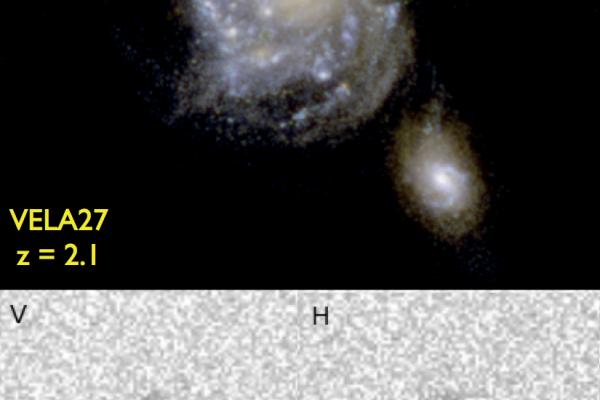
New Insights on Galaxy Formation from Comparing Simulations and Observations
Joel Primack - UC Santa Cruz
I will start by summarizing new results from analysis of cosmic large scale structure simulations, including the possibility that the star formation rate of many star-forming galaxies reflects their dark matter halo’s mass accretion rate. I will then describe successes and challenges of high-resolution hydrodynamic galaxy simulations in trying to understand the Hubble Space Telescope observations of galaxies during the period of most vigorous star formation (redshifts 1 to 3, “Cosmic High Noon”). Like most astronomers, I used to think that galaxies form as disks, that forming galaxies are pretty smooth, and that galaxies generally grow in radius as they grow in mass — but we are now learning that all these statements are false. The majority of star-forming galaxies at z > 1 have recently been shown to have mostly elongated (prolate) stellar distributions rather than disks or spheroids, and our simulations may explain why. A large fraction of star-forming galaxies at redshifts 1 < z < 3 are found to have massive stellar clumps. These originate from phenomena including disk instabilities in our simulations, which also help to create compact spheroids through galaxy compaction. The talk will also describe the Assembling Galaxies of Resolved Anatomy (AGORA) program to run and compare high-resolution simulations using as much as possible the same initial conditions, physical assumptions, and output analysis procedures.
Coffe and Donuts will be served at 2:00pm in 4054 McPherson Laboratory.
